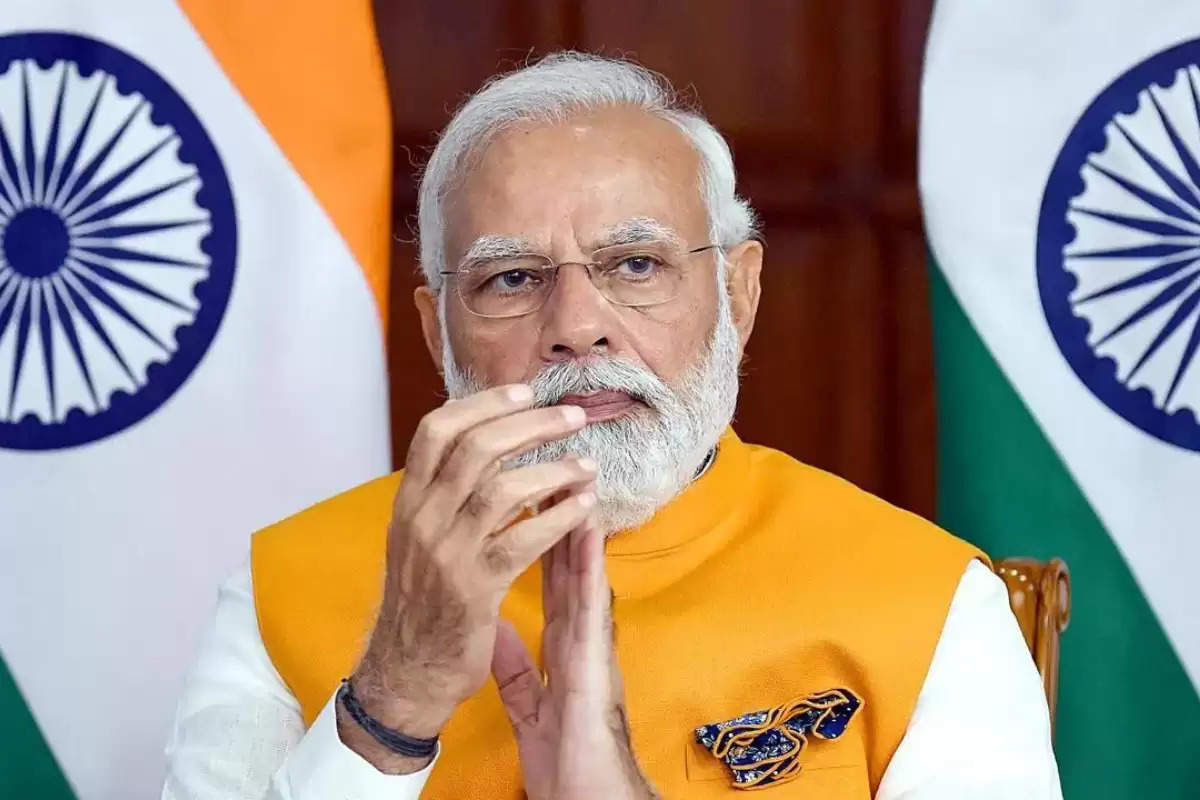Before leaving for Japan, Modi urges for collectively addressing difficulties.

Prime Minister Narendra Modi announced on Friday that he will discuss the need for collaborative action to solve global challenges with the leaders of the G7 states and other partners invited to the G7 Summit in Japan.
Modi said he is attending the G7 Summit at Prime Minister Fumio Kishida's invitation in a statement released ahead of his departure for a three-nation tour, which will start in Japan. In addition, Modi will meet privately with Kishida, who paid a visit to India in March.
"Given that India is currently in charge of the G20, my participation in this G7 Summit is especially significant. I look forward to discussing difficulties the world faces and the necessity for concerted action to address them with the G7 countries and other invited partners, he said.
Some of the leaders present at the G7 Summit will meet with Modi on a one-on-one basis. India is one of eight nations that Japan has invited to three outreach sessions at the summit taking place in Hiroshima from May 19–21.
These sessions, the first of which will focus on food, health, development, and gender equality, and the second on climate, energy, and environment, are scheduled to feature a speech from Modi. A "Peaceful, Stable, and Prosperous World" is the focus of the third session.
From Japan, Modi will fly to Port Moresby in Papua New Guinea, where he and Prime Minister James Marape will co-host the third summit of the Forum for India-Pacific Islands Cooperation. Any Indian prime minister has never before visited Papua New Guinea.
"I am pleased that the invitation to participate in this significant Summit has been accepted by all 14 Pacific Island Countries (PIC). I am looking forward to speaking with the PIC Leaders about topics that unite us, like as climate change and sustainable development, capacity building and training, health and well-being, infrastructure, and economic development', added Modi. FIPIC was established during my visit to Fiji in 2014.
Moreover, Modi will meet privately with the summit attendees Marape, Bob Dadae, the governor general of Papua New Guinea, and some PIC leaders.
After that, he will fly to Sydney, Australia, at Prime Minister Anthony Albanese's invitation, for a private meeting to assess bilateral relations and discuss the first India-Australia annual summit that took place in New Delhi in March. Modi will meet the Indian community in Sydney as well as CEOs and business executives from Australia.
Moreover, Modi will meet privately with the summit attendees Marape, Bob Dadae, the governor general of Papua New Guinea, and some PIC leaders.
Initial plans for the Australia part of the tour included a Quad Leaders Summit, but it was postponed after US President Joe Biden cancelled his trip to Sydney to address a domestic debt ceiling situation. The Quad leaders are now anticipated to meet on the sidelines of the G7 Summit in Japan, according to people with knowledge of the situation.
India anticipates a number of outcomes from the Hiroshima Quad Summit, which will be attended by Modi, Biden, Kishida, and Albanese. Since Modi has scheduled more than 40 engagements and will meet with more than two dozen leaders, his tour will be busy.
Foreign Secretary Vinay Kwatra stated at a media briefing on Thursday that "there are numerous deliverables which we are anticipating to come out of [the Quad summit] and I think all that will be shown when the four leaders meet in Hiroshima."
Kwatra responded that "when the four Quad leaders assemble, it is a Quad summit" in response to the question of whether this will be a regular Quad summit or only a gathering of the four leaders. Kwatra continued, "India's involvement at G7 Summits demonstrates the growing realisation that the nation should be part of serious efforts to overcome international concerns related to peace, security, and development."
This is important in light of our current G20 leadership and our specific initiatives to give our fellow members of the Global South's interests and concerns top priority, he said.
Kwatra cited Modi's declaration to Russian President Vladimir Putin last year that this is not a time for war, given that the Ukraine situation is anticipated to be a major topic at the G7 Summit. This is not a time for war, Modi insisted, and the dispute must be resolved via negotiations and diplomacy.
Insofar as this battle is concerned, he continued, "That is the fundamental underpinning on which our political standing and the pursuit of our economic interests and other interests is founded.
.png)